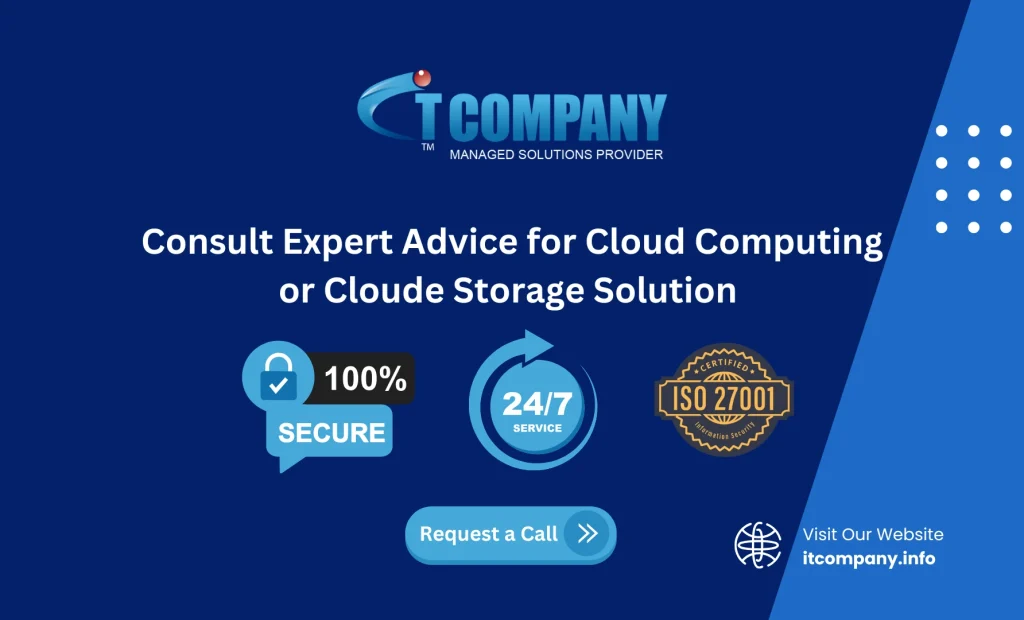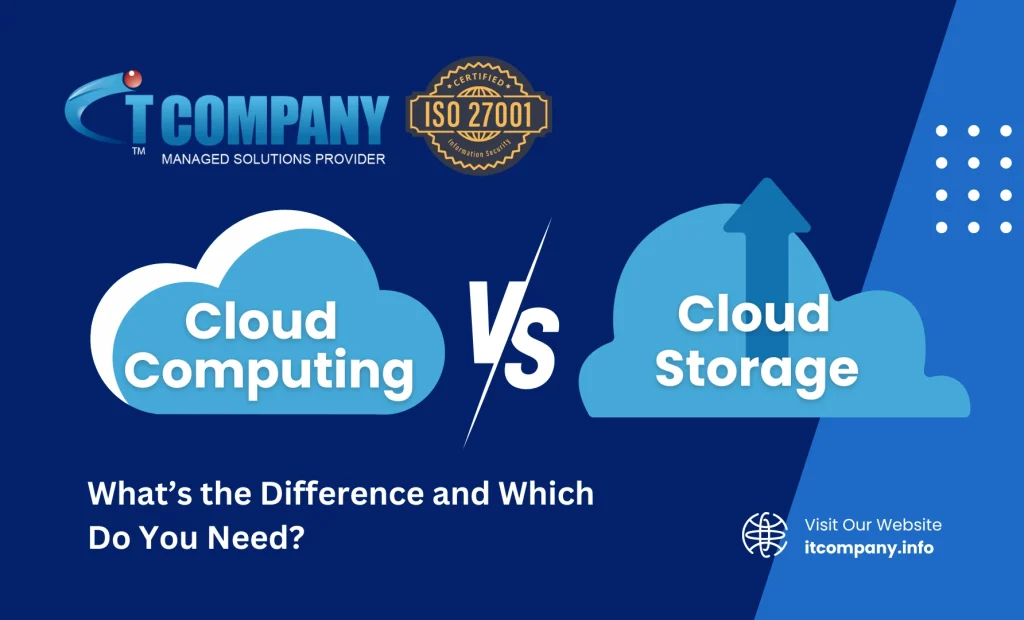Cloud computing and cloud storage are two pillars of modern technology, but knowing which one you truly need can make all the difference. While they may seem similar, they are actually quite different.
In this article, we will explore the key differences between cloud computing and cloud storage, explain what each service offers, and help you decide which one is right for your needs.
What is Cloud Storage?
Cloud storage refers to the online storage of data on remote servers that can be accessed over the internet. Rather than storing data on a local hard drive or a physical server, cloud storage allows users to upload, store, and manage files remotely. This means you can access your documents, photos, videos, and other types of data from any device with an internet connection.
Popular examples of cloud storage services include:
What is Cloud Computing?
Cloud computing, on the other hand, is the delivery of computing services—including web servers, storage, databases services, networking, software, and analytics—over the internet. Instead of relying on physical infrastructure, businesses and individuals use cloud computing to run applications, store and process data, and access powerful computing resources. It allows users to use software and hardware on a pay-as-you-go basis without needing to invest in expensive infrastructure.
Popular examples of cloud computing services include:
- Amazon Web Services (AWS)
- Google Cloud Platform (GCP)
- Microsoft Azure
- IBM Cloud
Key Differences Between Cloud Storage and Cloud Computing
| Aspect | Cloud Storage | Cloud Computing |
|---|---|---|
| Definition | Stores data remotely for easy access | Provides remote computing resources and services |
| Primary Purpose | Data storage and management | Computing, processing, and running applications |
| Functionality | Allows you to store and retrieve files | Enables you to use remote servers, software, and more |
| Use Case | Personal or business file storage | Running applications, data analysis, hosting websites |
| Examples | Google Drive, Dropbox, OneDrive | AWS, Microsoft Azure, Google Cloud Platform |
| Cost Structure | Typically pay-per-storage usage | Pay-per-usage model for computing resources |
| Users | Individuals, small businesses, enterprises | Businesses, developers, large enterprises |
| Access to Hardware | You access storage from anywhere | You access powerful computing power and infrastructure |
| Internet Connection | Required to store and retrieve files | Required to run applications, process data, or host services |
Cloud Storage in Detail
Cloud storage works by allowing you to upload your files to a remote server, which is maintained and managed by a cloud storage provider. You can then access these files from any device with internet access.
Some key benefits of cloud storage include:
- Remote Access: With cloud storage, you can access your files from anywhere, as long as you have an internet connection. This is particularly useful for those who need to work across multiple devices or need to access files while traveling.
- Data Backup: Cloud storage offers an easy way to back up important documents, photos, and videos. If your device breaks or is lost, your data will still be safe and accessible from another device.
- Scalability: Cloud storage allows you to increase your storage capacity as needed. Unlike physical storage devices, there’s no need to worry about running out of space.
- Collaboration: Many cloud storage services allow multiple users to access and edit files simultaneously, making it ideal for team collaboration.
Cloud Computing in Detail
Cloud computing, on the other hand, provides access to a range of computing services that help businesses run applications, store data, and manage complex workloads. It’s not just about storing files, but about using powerful computing infrastructure to handle data, software, and business processes.
Some key benefits of cloud computing include:
- Cost Savings: Cloud computing eliminates the need for businesses to invest in expensive on-site hardware, such as servers and networking equipment. Instead, companies only pay for the resources they use on a subscription or pay-as-you-go basis.
- Scalability and Flexibility: Cloud computing platforms allow users to scale their resources up or down depending on demand. For instance, if a business experiences sudden growth, it can easily increase computing power without purchasing additional equipment.
- Remote Access to Applications: Cloud computing enables users to run complex applications, such as enterprise software, databases, and development environments, without needing to install them on local machines. This means that users can access and work with these applications from anywhere.
- Data Security: Cloud computing services are often equipped with advanced security features, such as encryption, which help protect sensitive data. Many cloud providers offer reliable backup and disaster recovery options as well.
Which One Do You Need?
The choice between cloud storage and cloud computing depends largely on your specific needs.
- Cloud Storage: If your primary concern is storing and accessing data remotely, cloud storage is the better option. It’s ideal for individuals or businesses that need to store documents, media files, and other types of data and want easy access to them from various devices. Popular use cases include:
- Personal file storage (photos, documents, videos)
- Business file sharing and collaboration
- Data backup and recovery
- Cloud Computing: If you require computing power for running applications, processing large amounts of data, or hosting services, cloud computing is the solution for you. It is perfect for businesses and developers who need more than just storage—who need scalable computing resources to handle complex operations. Use cases include:
- Running business applications (CRM, ERP systems)
- Hosting websites and online platforms
- Data analysis and machine learning tasks
- Software development and testing environments

Conclusion
Cloud storage and cloud computing are both crucial components of the modern digital landscape, but they serve different purposes. Cloud storage is focused on storing and accessing data, while cloud computing offers remote access to computing resources for running applications, processing data, and handling large-scale tasks.
If you need a solution for personal data storage or file sharing, cloud storage is likely all you need. However, if your goal is to run applications, process large datasets, or take advantage of cloud-based computing power, cloud computing is the better choice.
Ultimately, the choice between cloud storage and cloud computing depends on your specific requirements. By understanding the differences and benefits of each, you can select the right cloud solution that best fits your needs.

